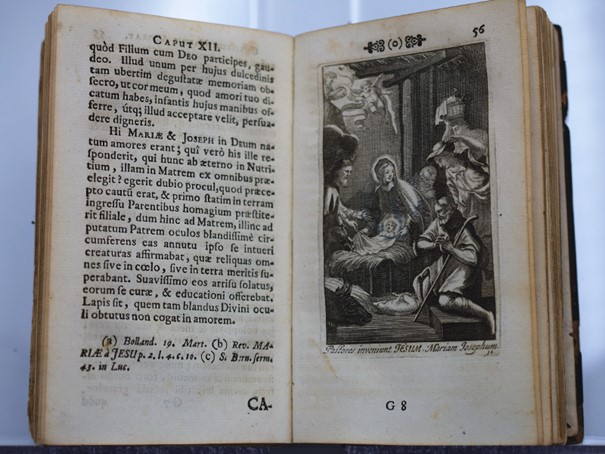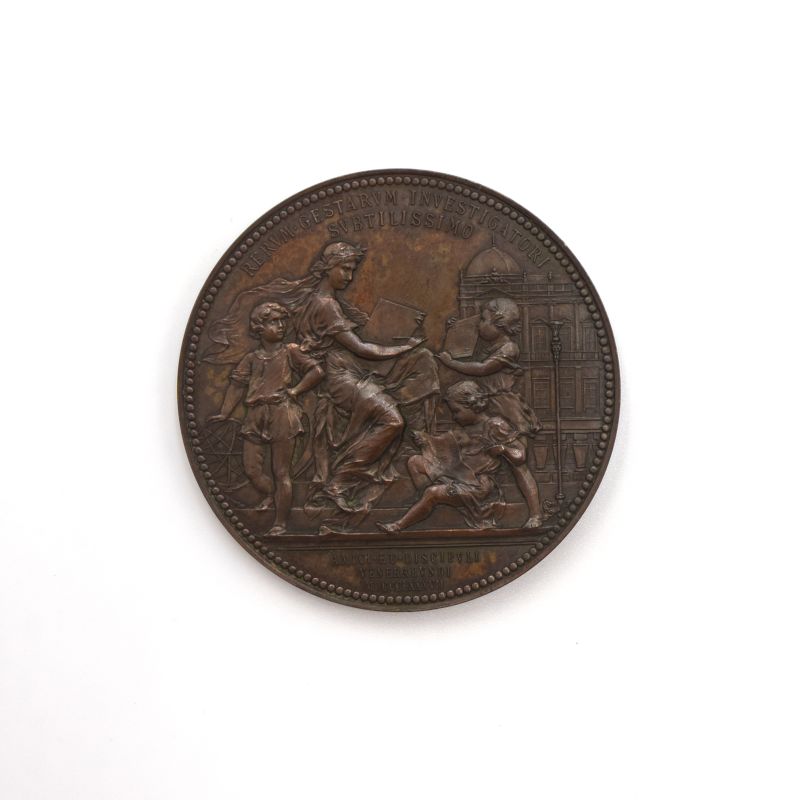In the framework of our book adoption programme, our restorer and old book librarian offered our adopter a detailed presentation of the supported book.
Georgina Sofia Lazaridisz adopted the book Amores Josephini ... (The Love of Saint Joseph...) by Gábor Hevenesi on behalf of Healthwhatelse Ltd. The ceremonial presentation of the certificate and the book launch took place on Joseph's Day.
Gábor Hevenesi (1656–1715) was a Jesuit theologian and historian, and the provincial of the Hungarian Jesuit Province. First he taught in Trnava, then in Vienna and Graz. He was the counsellor of Leopold Kollonich, archbishop of Esztergom. At the archbishop's request Hevenesi launched the collection of historical documents pertaining to Hungary. The material gathered during this enterprise fills 91 manuscript volumes preserved today in the University Library and Archives.
Hevenesi was a prolific author: he published more than 30 books. His book titled Amores Josephini was published in 1692 in Vienna at the Leopold Voigt’s University Press that published a great number of Hungarian documents. Although the strengthening of the cult of St. Joseph in the West had started already in the high Middle Ages, the real heyday of the production of writings and meditative treatises on him took place in the 16th and 17th centuries. Emperor Leopold (r. 1657–1705) offered the Habsburg realms to the patronage of St. Joseph and named his son after him. According to Hevenesi, who relied on earlier literary tradition, the saint was born without pain by his mother and took a vow of chastity as a mature man. Joseph is represented in this work as the head of the Holy Family and a caring father, who lays his son to sleep and feeds the baby Jesus, later teaches him to read and write, as well as carpentry. After his death, Joseph could occupy his place next to his spouse before Christ.
We would like to thank our book-adoptor for saving this book.
For detailed information about our book adoption programme, please visit our website. Adopt a book yourself! Our list of books for adoption is available here.
Our adopted book:
RMK III 557/2
Amores Josephini, sive divorum amabilissimi, divini amoris nutritii, Mariae sponsi, ditionum Austriacae domui subditarum patroni tutelaris, Josephi vita, fovendis piorum cordium amoribus ab ejusdem honori addictissimo academico, e caesareo Societatis Jesu Collegio Viennensi iconibus, et affectibus illustrata, anno MDCXCII Viennae Austriae [Wien]: typis Leopoldi Voigt, Universitatis Typographi, [1692]




